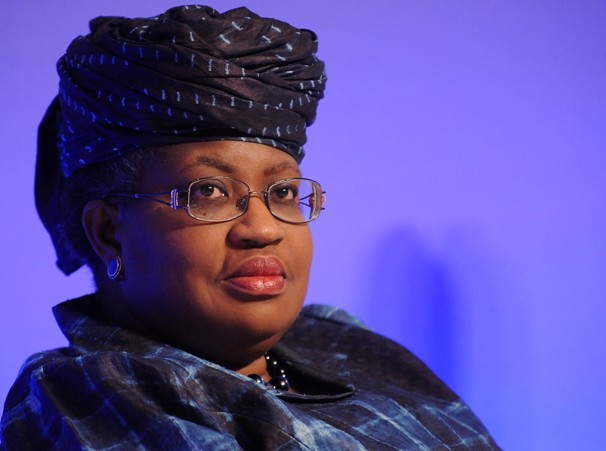“If women want more rights than they got, why don’t they take it and stop talking about taking it.” A century after these words were uttered by Sojourner Truth, men and statistics are quick to point out that women have heed her words. Indeed, history is filled with stories, tales and wit of both men and women during the tumultuous march to emancipation and birth and grooming of the idea of feminism. Today, there are more female country leaders, more female business owners and titans of industry; and in almost every country, women can vote.
In a live televised interview with the Dalai Lama last year, Archbishop Desmond Tutu confidently responded that the magic bullet for the issue of world peace was very simple: let women rule! Well, there are currently 17 female world leaders, with Africa boasting of 2 of them: Ellen Johnson-Sirleaf of Liberia and Joyce Banda of Malawi. There is a tendency to be quick to compare these female leaders to their male counterparts in other African countries but a direct comparison in Africa is difficult owing to economic indicators, social issues and unique history of each country.
That notwithstanding, we must note that Ellen Johnson-Sirleaf inherited a civil war riddled country and has managed to stir it along the path of what is being described as a sustainable development path, something Charles Taylor, her predecessor was unable to do. Alongside Leymah Gbowee, President Sirleaf was also responsible through peaceful protest to foil plans of another civil war in Liberia; something that earned them both a Nobel Peace Prize.
Shortly after Joyce Banda assumed office as president of Malawi, according to Forbes, there was an immediate resumption of aid and FDI from the U.K, EU, ADB, IMF just to name a few of over $200 million with her male predecessor unable to secure such amounts. In addition to a fortified domestic account, there is her commitment to justice exemplified through her issuing of a domestic warrant for the arrest of Omar Bashir, the wanted Sudanese president who prior to her assumption into office sauntered in and out of Malawi in spite of an international arrest warrant out for him by the I.C.C.
In one of the landmark events in Africa in 2012, the first ever-female head of the African Union Nkosazana Clarice Dlamini-Zuma pointed out, “African women make up 50 percent of this continent and lets not forget that they produce the other 50 percent-men.” A fact that further justifies an increased exertion on African polity by women. In the same year, we saw Fatou Bensouda, a Gambian graduate from the University of Lagos Law School rise to Chief Prosecutor of the International Criminal Court. Dr. Ngozi Okonjo-Iweala became the finance minister for Nigeria after seeing the post of head of World Bank taken from her even after The Economist tipped a hat to her and warned of the danger of having a less qualified American choice take that office. A sentiment I am inclined to agree with. The success of her first foray into Nigerian politics under the presidency of Olusegun Obasanjo saw her successfully negotiate clearing off of Nigeria’s debt to the Paris Club. These women are just a few of a growing pantheon of women visibly rising and giving female empowerment more than a voice and a face, but also wielding tremendous power. Look no further than the growing efficiency of the A.U in dealing with conflict issues such as the ongoing issues in Mali to give credence to Archbishop Desmond Tutu’s sentiments about women being more resolute in their pursuit of peace.
Whether or not one questions the efficacy of women in power in Africa compared to their male counterparts or not, the female leaders have thus far had an impressive start. Furthermore, their role in power is an effective tool in empowering women as we march towards more developed societies. The design of the Millennium Development Goals set forth by the U.N places a significant amount of emphasis on women especially when it comes to realizing those goals in Africa. One of the pillars is specific to gender equality and empowering women, while the other 3: universal primary education, child mortality and maternal health; relate by far more to women than men. The Human Development Index is a composite metric that gives a telling snap shot of the development of a country by taking into account life expectancy, knowledge attainment and standard of living. For several years, Norway has topped this list alongside other Nordic countries, Switzerland and Australia. Coincidentally or not, the Prime Minister of Denmark is a woman, the Prime Minister of Australia is a woman and these countries epitomize societies with female citizens that are very well empowered.
However the question of the role women play in effective social and human development in the society would eventually be asked and explored. Until then, it is imperative that the stewardship of a nation should be left to the most capable without any group being discriminated against on grounds of sex. It is imperative that at all levels within the polity of a society the ability to innovate, lead and excel should an unalienable right open to everyone within the society irrespective of their gender. The likes of Dr. Okonji-Iweala, Fatou Benstou, Leymah Gbowee and President Sirleaf have set an impressive trend for women on the continent, leaving a trail of practical hope for the following generation.








